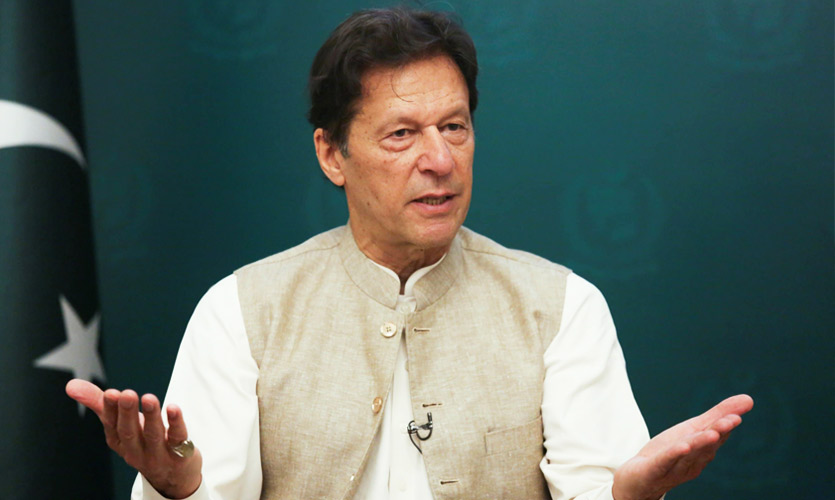The announcement of the appointment of a new Inter-Services Intelligence (ISI) chief by Imran Khan last month had led to a fresh rift between the federal government and the Pakistan army led by General Qamar Javed Bajwa.
While the issue of the appointment of the new ISI chief has reportedly been resolved, various media reports have claimed that PM Imran Khan is not happy with Lt General Nadeem Anjum’s appointment as the new chief of ISI, backed by General Bajwa.
According to reports, Khan wanted to retain Lt General Faiz Hameed, who was incidently said to play a significant role in toppling the NATO-backed Afghanistan government in Kabul. However, he had to bow to the pressure of the military and give the charge to Anjum, who will take charge of the ISI on November 20. He is currently the Karachi Corps Commander.
The differences between General Bajwa and Khan emerged last month when the army announced the appointment of the new ISI chief without consulting the government of Pakistan. However, it took the prime minister nearly a month to confirm his appointment as the country’s top intelligence officer. According to reports, the decision was finally announced by the PMO after several meetings between General Bajwa and Khan.
CNN News18 has supposed that major changes can be expected in Pakistan politics in the coming weeks. The report claimed that two options have been presented before Imran Khan – either resign from his post by November 20 – or let the Opposition bring in-house changes in the parliament. Both scenarios will result in Imran Khan losing his presidency.
The report further suggested that government could also be dissolved as the ruling Pakistan Tehreek-e-Insaf is on the verge of losing its allies Muttahida Qaumi Movement and Pakistan Muslim League (PML (N)).
PM Imran Khan has also been under fire for allegedly surrendering its government to the country’s two big extremist groups – Tehreek-e-Labbaik (TLP) and Tehreek-i-Taliban Pakistan (TTP). Both groups are responsible for killing hundreds of people and have been challenging the elected government in Pakistan for a long time.
The TLP is no longer a banned outfit in Pakistan after the Imran Khan-led government approved the hardliners’ demands in order to end the violent protests across the country. The move will allow for active participation of TLP members in politics. The Imran Khan government has also freed more than 2,000 activists of the TLP recently.
Last week, the Supreme Court of Pakistan had summoned PM Imran Khan and slammed his government for inaction against TTP, the group behind the 2014 massacre of a Karachi school that killed more than 130 students. Chief Justice of Pakistan Gulzar Ahmed also asked Khan about what steps he has taken against the terrorists during his tenure and why the government is surrendering before them.
Read more: Pakistan’s Terror Links Dominate Bilateral Talks Between Kamala Harris And PM Modi
The Imran Khan government is reportedly also in talks with the TTP with the help of the new government in Afghanistan. Speaking with a news channel in Pakistan, Afghanistan’s foreign minister Amir Khan Muttaqi claimed that the Taliban is mediating between the Pakistan government and the TTP to maintain peace in the country.
Meanwhile, a new protest led by a hardline cleric and Jamiat Ulema-e-Islam Fazl chief Maulana Fazlur Rehman has begun against the Imran Khan government. According to Rehman, the country is heading towards isolation under Khan’s leadership. Rehman, who is supposedly in talks with former premier Nawaz Sharif and Bilawal Bhutto to topple the Imran Khan government, is planning to carry out protests across the country. According to reports, Rehman will stage agitations with his thousands of followers in Quetta, Lahore, Peshawar, and Islamabad in the coming weeks.
Political analysts believe that Imran Khan’s lenient behaviour towards hardliners and extremist groups has also resulted in General Bajwa’s disappointment.










